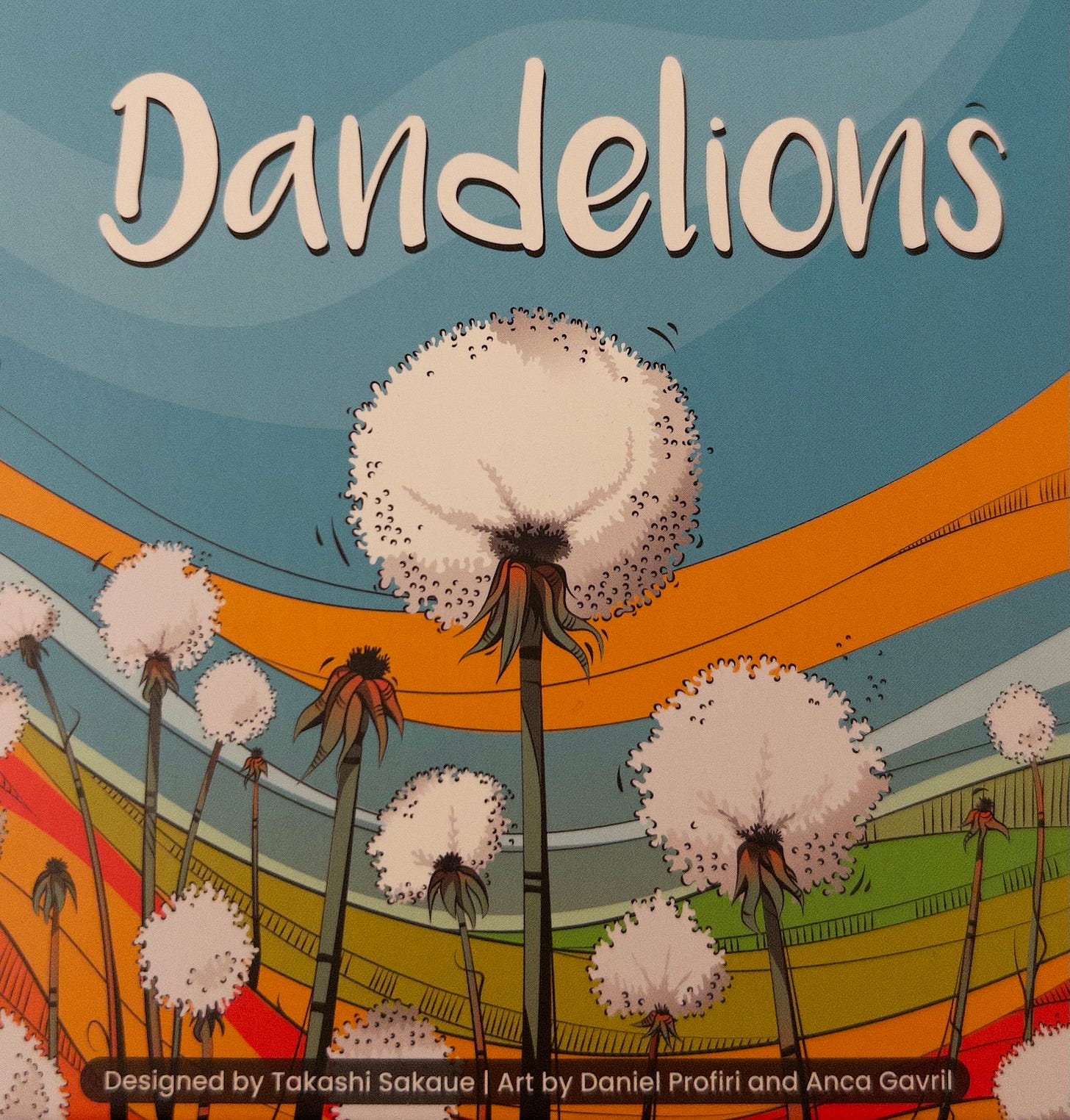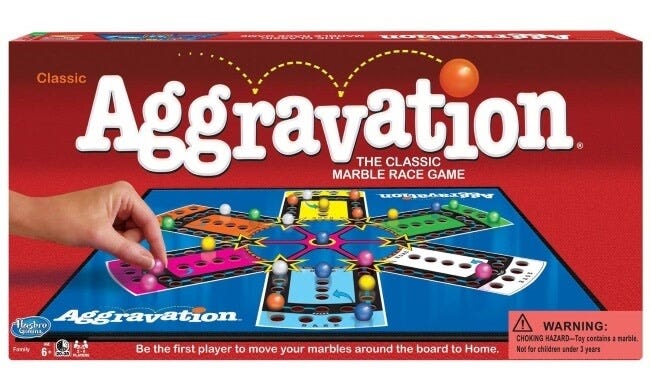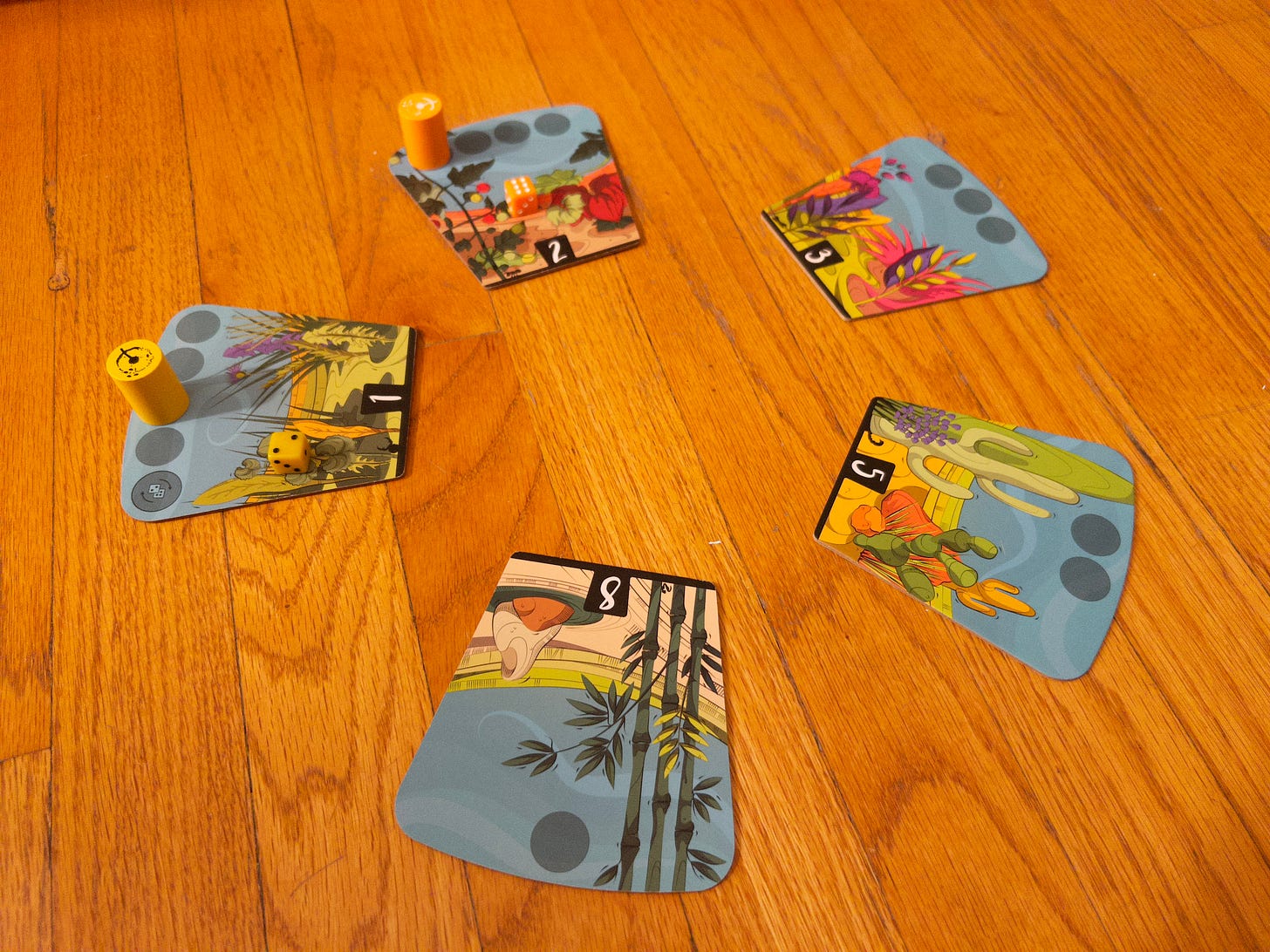Dandelions
Or, how board games have grown up since I was a kid
Aggravation is one of the games I most remember playing as a kid. Those long slender ones that were three feet long and super thin. I think the point of those boxes was that you were supposed to easily be able to stack them up so you could put a bunch into a cabinet very easily. It was this very beat up and colorful box. And it had plastic marbles that would slot into various places on this circle map on the board.
The box of Aggravation was super beat up. Which, on reflection, is at least somewhat strange because I don’t actually remember playing the game Aggravation all that much. But, I do remember it was easier to convince other people to play because it was so simple and required relatively minimal effort to play.
It was not a great game
The one thing Aggravation has going for it is that it matches its namesake really well. It’s incredibly aggravating to play. The basic goal is getting your marbles all the way around the board (like some sort of extended Duck, Duck, Goose chase) before the other players could. It was this bright background with a bunch of different colors on it. I think the general aesthetic of games back then was pretty on point, even if the designs were not.
When I played Dandelions for the first time, I immediately thought about Aggravation. They both follow the same rough concept. In Dandelions, you roll a bunch of dice, and then try to move around the board while interacting with your opponent. But when you land on an opponent, instead of sending your opponent backwards, it catapults you forward, like a dandelion floating on the wind. It inverts the problems with Aggravation to speed the game up instead of slowing it down.
There are a bunch of other smart design choices: how you roll all the dice you’ll use for the game at the start, how the scoring mechanism rewards thoughtful play, or how there are fewer spaces on the petals worth more points. But each of these innovations only adds to that subtle design tweak, they don’t define it.

When people hear the phrase “hobby games” they immediately assume complexity and difficulty have come along with it. For many games, that’s simply not true. Designers nowadays have a much better grasp of our psychology and what makes games fun to play. Dandelions represents that shift. The rough edges of Aggravation have been sanded off, and a game that is more whimsical, expressive, and fun to play is all that remains.



